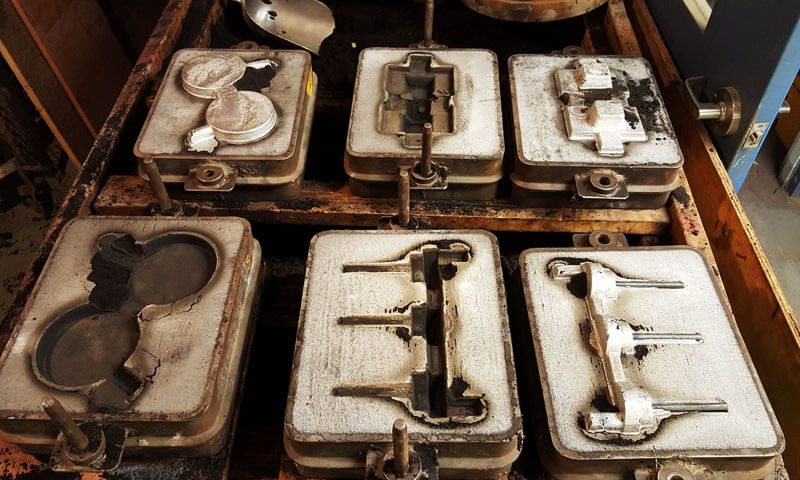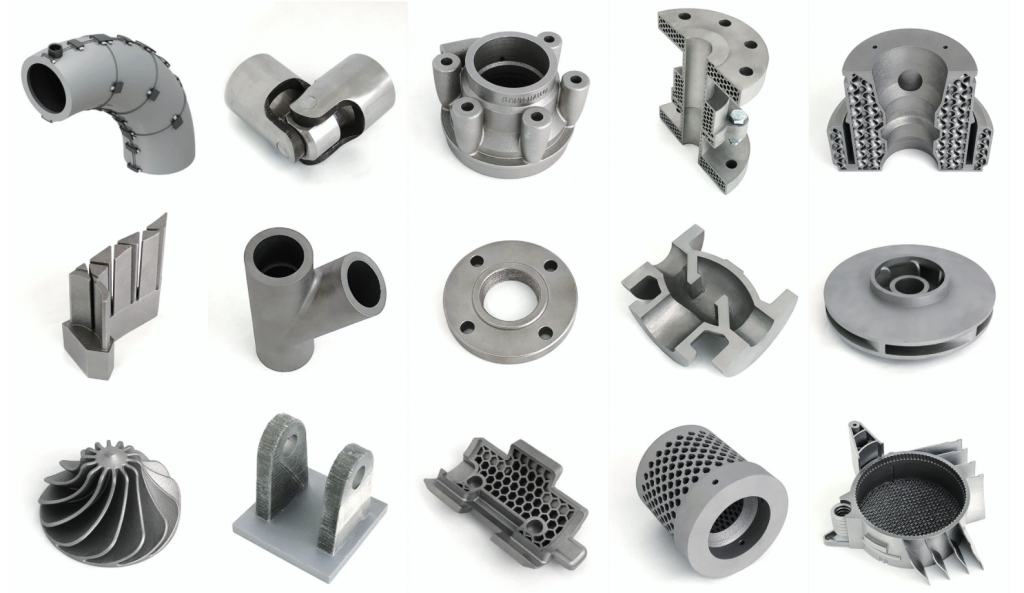Exploring Aluminum Metal Casting for customized industrial parts
Ideal Practices for Upkeep and Applications in the Aluminum Foundry Market: A Comprehensive Introduction
Keeping tools in the aluminum foundry industry is crucial for operational success. Routine evaluations and predictive maintenance can considerably reduce downtime and enhance safety. Advanced innovations, such as IoT and data analytics, play a critical function in this procedure. Comprehending the full scope of best techniques requires a better evaluation of details approaches and their influences on efficiency. What are the vital elements that contribute to a reputable maintenance structure?
Value of Routine Maintenance in Light Weight Aluminum Foundries
Regular maintenance plays a vital function in the effective operation of light weight aluminum factories. By systematically inspecting and servicing tools, shops ensure peak performance and long life of machinery. Regular upkeep activities, such as component, cleansing, and lubrication substitute, help protect against unanticipated failures that can result in costly downtime.
Additionally, routine checks boost work environment safety by recognizing potential threats before they rise into serious concerns. Tools that is well-kept runs more successfully, leading to boosted product high quality and lowered waste. Additionally, adherence to an organized upkeep routine can sustain conformity with industry guidelines, therefore fostering a reputation for reliability and high quality within the marketplace.
Carrying Out Anticipating Maintenance Strategies
Anticipating maintenance techniques take the principles of regular maintenance a step even more by leveraging information analytics and progressed monitoring innovations. In light weight aluminum shops, these strategies allow operators to expect equipment failures before they occur, thus minimizing unintended downtimes and optimizing operational efficiency. By making use of sensing units and IoT devices, real-time information can be gathered on maker efficiency, enabling the recognition of possible issues through predictive analytics.
Maximizing Melting and Putting Procedures
Reliable melting and putting procedures are essential for taking full advantage of efficiency and ensuring the high quality of aluminum castings. To enhance these processes, shops need to concentrate on precise temperature control throughout melting, as this straight impacts the metallurgical residential properties of the alloy. Using sophisticated melting innovations, such as induction and resistance melting, can improve energy performance and minimize cycle times.
Applying automated pouring systems minimizes human mistake and preserves consistency in the putting procedure. Proper mold and mildew preparation, including adequate preheating, is important to protect against thermal shock and improve mold and mildew durability.

Enhancing Safety Procedures in Shop Operations
Prioritizing security in light weight aluminum foundry operations is crucial for protecting workers and ensuring an effective environment. Effective security procedures consist of regular training sessions that emphasize the value of individual safety equipment (PPE), such as safety glasses, headgears, and handwear covers. Additionally, the establishment of clear emergency procedures is important in handling prospective mishaps.
Routine assessments of tools and equipment aid recognize threats prior to they rise right into severe concerns. Carrying out a durable coverage system motivates workers to communicate safety concerns Casting Foundry without fear of repercussion. Cultivating a society of security guarantees that every staff member recognizes their function in maintaining a secure office.
On top of that, guaranteeing proper air flow and tracking air quality can minimize direct exposure to unsafe fumes and dirt. By enhancing these techniques, aluminum shops can considerably decrease the risk of crashes and create a setting where workers feel valued and risk-free, ultimately boosting general functional effectiveness.
Leveraging Technology for Improved Effectiveness
Using advanced innovation has actually become progressively crucial for aluminum factories intending to boost operational effectiveness. Automation and robotics play an essential role in improving manufacturing procedures, reducing labor costs, and lessening human mistake. Implementing real-time monitoring systems enables the continual analysis of tools performance, enabling positive maintenance and minimizing downtime.
The assimilation of information analytics provides valuable insights into functional operations, promoting far better decision-making and source appropriation. For instance, anticipating analytics can recognize possible failures before they occur, further optimizing maintenance timetables.
Furthermore, embracing advanced melting and casting modern technologies boosts power efficiency and material return, which are essential for sustainability in the market. By embracing these technical innovations, aluminum factories can not i thought about this only enhance performance however also keep an one-upmanship in an increasingly requiring market (aluminum metal casting). her response Eventually, leveraging innovation is pivotal in driving technology and improving overall functional efficiency within the sector

Often Asked Inquiries
What Are Typical Signs of Tools Wear in Light Weight Aluminum Foundries?
Common indicators of devices wear in light weight aluminum foundries include uncommon noises, reduced efficiency, boosted vibration, overheating elements, leakages, and visible deterioration. These indicators usually indicate the demand for maintenance or prospective substitute to avoid pricey downtime.
How Can I Train Personnel for Effective Upkeep Practices?
To train personnel for reliable maintenance methods, one can apply hands-on workshops, develop detailed manuals, motivate mentorship programs, and perform regular evaluations to review abilities and knowledge, making sure all staff members understand maintenance procedures extensively.
What Are the Environmental Regulations for Aluminum Foundries?
Light weight aluminum shops undergo various environmental guidelines, consisting of emissions control, waste management, and resource conservation. Conformity warranties marginal ecological effect, advertising sustainability while sticking to neighborhood, nationwide, and international environmental standards and policies.
Exactly How Do Factories Handle Waste and Recycling of Light weight aluminum?
Factories handle waste and recycling by applying systems for accumulating scrap light weight aluminum, making use of innovative splitting up modern technologies, and teaming up with reusing centers to assure reliable recovery processes, consequently reducing ecological influence and advertising sustainability within the sector.
What Are the Prices Related To Applying Advanced Technologies?
Applying innovative innovations in factories incurs significant prices, consisting of preliminary investment, training, and maintenance expenditures. Nonetheless, the long-lasting benefits, such as increased efficiency and lowered waste, usually validate these expenditures, leading to boosted earnings.
Routine upkeep plays an important role in the effective operation of light weight aluminum foundries. In light weight aluminum factories, these strategies allow operators to prepare for equipment failings before they happen, thus lowering unexpected downtimes and maximizing operational performance. Using innovative innovation has come to be progressively crucial for aluminum shops aiming to improve functional efficiency. Typical indicators of equipment wear in light weight aluminum shops include uncommon sounds, decreased effectiveness, raised vibration, overheating elements, leakages, and noticeable corrosion. Executing innovative modern technologies in shops incurs significant expenses, consisting of first investment, training, and maintenance costs.